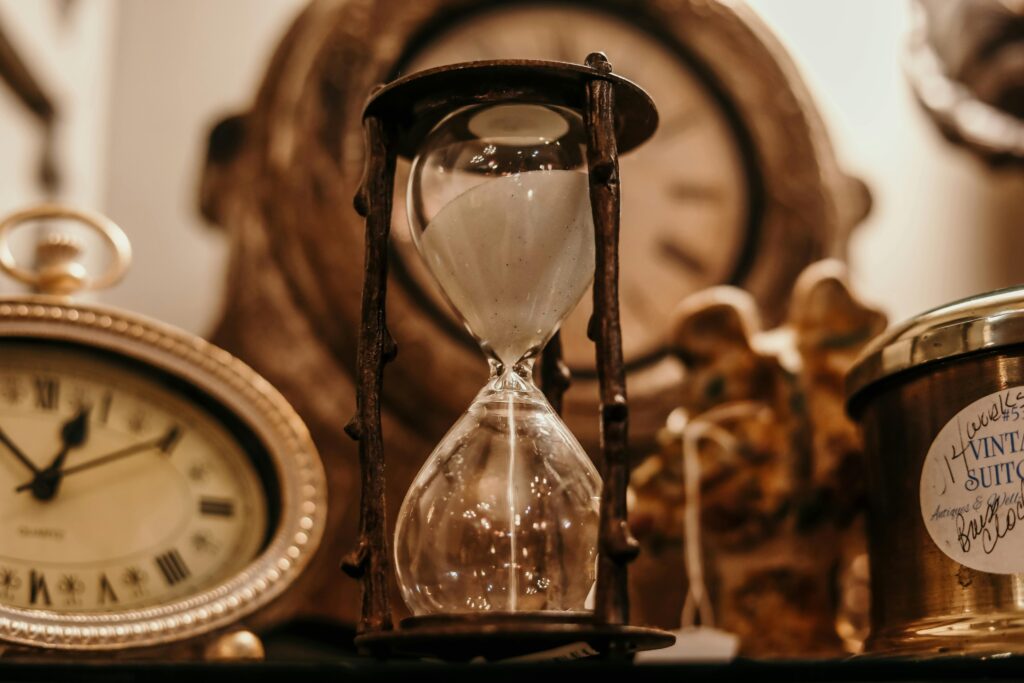The Study of History is on the Decline: Why is this Problematic?
1st April 2024

Recent Posts
Often disparagingly described as a ‘dying discipline’, history is increasingly struggling to capture the hearts and minds of the masses in the present day. At worst, it is ridiculed in reductive terms as ‘‘the study of dead people,’’ and at best, it is dismissed as ‘’irrelevant”.
Recently, I attended an exhibition at the Royal Academy titled Entangled Pasts 1768 – now exploring art relating to Britain’s colonial histories. It brought together 100 artworks to investigate the role of art in shaping narratives of empire, enslavement, resistance, abolition, indenture and colonialism. At its forefront was a mass sculpture by Tavares Strachan named The First Supper featuring twelve historically significant figures of African-origin sharing a meal. The likes of Haile Selassie, Mary Seacole and Harriet Tubman were not merely joined for a dose of physical nourishment, however, but a symbolic intellectual one.

What struck me was how multi-faceted the displays were throughout the exhibition: portraiture, sculpture, and filmography were only some of the diverse mediums employed to convey historical lessons. I had never experienced history taught in such a dynamic and stimulating way – and that is the remark of someone who has obtained an undergraduate history degree. Thus, when postulating the causal reasons behind the decline in the study of history in US and UK educational institutions, the most overt issue is its delivery in a comparatively one-dimensional and bland manner.
Recent staff cuts and course closures at several British universities have contributed to an ever-growing fear that the future of history is under threat, particularly in universities established post-1992. The situation has become concerning enough to prompt official investigation by History UK – the independent national body promoting and monitoring History in UK Higher Education.
In September 2021, it commissioned a research study examining UK-wide trends in university enrolments focusing on undergraduate history programmes, including recruitment and outcomes. This endeavour to rectify the need for more publicly available data on the subject culminated in a report released in June 2022 titled Trends in History in UK Higher Education.
The primary finding was that the number of history undergraduates fell by 17% from 2014-15 and 2019-20, and the number of history postgraduates fell by 16%. This verdict is all the more perturbing when considered in its full context. More specifically, this fall occurs against a backdrop of rising undergraduate numbers in UK universities, which have seen a 6% growth rate from 2014-15 and 2019-20. The growth in postgraduate numbers has been even steeper, at 19% from 2014-15 and 2019-20.
A similar decline occurred in Sixth Forms: the number of students gaining an A-Level in history declined between 2015-18, with those achieving higher grades (A*, A, B, C) also declining by 13-15%.
Tellingly, this phenomenon extends beyond UK institutions. In December 2018, the American Historical Association reported a one-third decrease in university history majors since 2011.
Oh, how starkly different the situation was in the ancient Greek and Roman worlds. Adoration for history writing in the classical period was widespread amongst the elites. Even so, a vast gulf exists between the definition of history in the ancient and modern worlds. In ancient Greece, ‘historia’ translated to ‘inquiry’ and had contemporary significance. Herodotus, widely hailed as ‘the father of history’, wrote about how the Greeks came to defeat the Persians, and his successor Thucydides, wrote about the Peloponnesian War as it was occurring. Furthermore, in antiquity there was a harmony between rhetoric and history, which rendered the two difficult to distinguish.

A critical turning point occurred in the nineteenth century when history was re-invented as a discipline which occupied the academic realm, much later than rhetoric in the fourth century. For us in the twenty-first century, history refers to the somewhat distant past upon which we can confer some objectivity.
Let us turn back to the present day. The statistically corroborated decline of historical study in the UK and US necessarily begs the question: why is the study of history declining?
Do not be fooled by the seemingly simplistic nature of this question, for an endeavour to ascertain an accurate answer would require a thorough investigation into factors beyond the confines of this article.
An effective starting point, however, would be a reflection on the global implications of 1957 – the year in which the USSR successfully launched Sputnik, the first artificial Earth satellite into space. In their fittingly titled journal article The Heritage of the Cold War in Contemporary Curricula and Educational Reforms, Tomislav Topolovcan and Snjezana Dubovicki denote this event the ‘’Sputnik Shock.’’ They explain that it ‘’launched the military race of the Cold War for arms and the space race: since then, education began to be seen as a mechanism for achieving the desired goals.’’
But what was the connection between military/technological prowess and education?
Well, this ground-breaking feat was attributed to the USSR’s supposed investment of greater resources into its educational provision. As a corrective measure, the US hosted the 1959 Woods Hole Conference wherein a panel of experts discussed educational reforms. In its desperate attempt to compete with its longstanding ideological rival, the US enacted a curriculum overhaul, placing a newfound emphasis on subjects that would facilitate its technological capabilities as a nation.
In the words of Topolovcan and Dubovicki, ‘’the Cold War race resulted in the reduction of socio-humanistic teaching content, and the implementation of content from the STEM area.’’ Thus, the space race radically influenced educational priorities: whilst STEM subjects were promoted more fervently than ever before, the humanities were relegated to a secondary and even inessential position – a legacy that lives on today.
Despite all this, you may find yourself wondering: why is it problematic that the study of history is on the decline at all? After all, we ought to contend with the all-important question of why history is significant in the modern day.

In March 2021, The International Churchill Society hosted a webinar panel titled ‘Why History Matters’ with Trevor Phillips and Mitchell Reiss. Of the plethora of insightful points raised, the most prominent ones were:
-Its capacity for illumination (understanding pathways that lead to human destruction versus prosperity).
-Gaining perspective (comprehending the past can shed light on the present day).
-Developing the attributes of empathy and humility (historical awareness has the capacity to positively influence the characteristics of individuals and politics of the current age).
-Centralising the concept of human fallibility (there are no certainties about the human condition, only probabilities – this knowledge can aid people to navigate life more effectively).
If the above litany of reasons is insufficient in convincing you of the importance of studying history, then perhaps you will find an outline of the dangers of not studying history more compelling.
As of the mid-twentieth century, we have been living in the ‘Information Age’, a modern era in human civilisation in which information is a commodity that is easily accessible via computer technology and hence is disseminated quickly and widely. Too often, the harnessing power of the internet is described in optimistic terms. Yet, one of its underlying pernicious features is that it enables people to create invented narratives, by deploying evidence accordingly to fulfil agenda-driven political or ideological motives.
Following in this vein, the internet facilitates confirmation bias – the tendency to interpret new evidence as a confirmation of one’s existing beliefs or theories. A robust example of this are Instagram/Facebook users who comment on posts relating to the ongoing Israel-Gaza tragedy, in the process privileging their desire to propagate misinformed preconceived narratives rather than enacting a critical engagement with primary sources. The true disaster here is not the obfuscation of history that occurs in the process but rather the very real lives that are compromised by the perpetual peddling of misinformation.

If there is to be one indispensable message from this article, let it be this: there is a pressing need to drive optimism around history as a discipline by generating new narratives regarding its intrinsic and extrinsic value.
It is certainly not impossible to ignite a revival of interest in history. Ultimately, such an enterprise worked with Renaissance Humanism – an intellectual movement symbolised by a revival of interest in the classical world and studies focused on human nature rather than religion. This is why 1400-1600 Europe is known as a ‘Renaissance’ or ‘rebirth’ of ideas.
In 2024, we urgently need a renaissance of historical studies. We must reignite a passion for delving into past worlds. Why? Because reflecting on the past can have transformational advantageous effects on our present.
After all, we are no longer living in the paranoia-stricken climate of the Cold War years, but our government has inherited the obsession with STEM subjects that materialised in that period.
It is vital for educational institutions to dispel any fears young people have about studying history. Perhaps they ought to start by foregrounding a key finding of the History UK report, wherein an analysis of available data on graduate earnings revealed that history graduates enjoy lifetime earnings (and earnings at different age points) that are similar, and often greater, than graduates of many STEM subjects.
The road to combatting the decline in historical study by encouraging its proliferation is no doubt a long one paved with unforeseen difficulties, but I hope this article will act as some, albeit minuscule, contribution to this endeavour.
Written by Nadia Mahmoud

